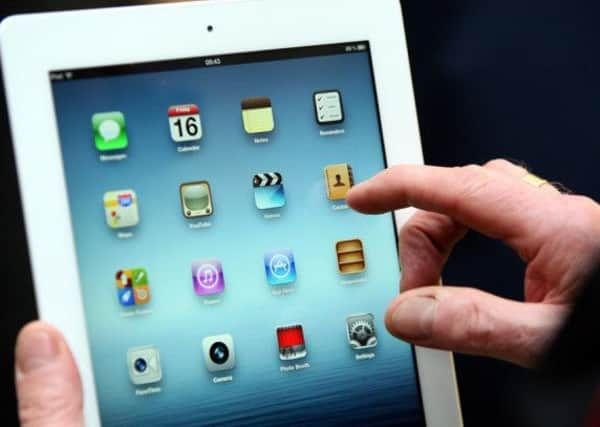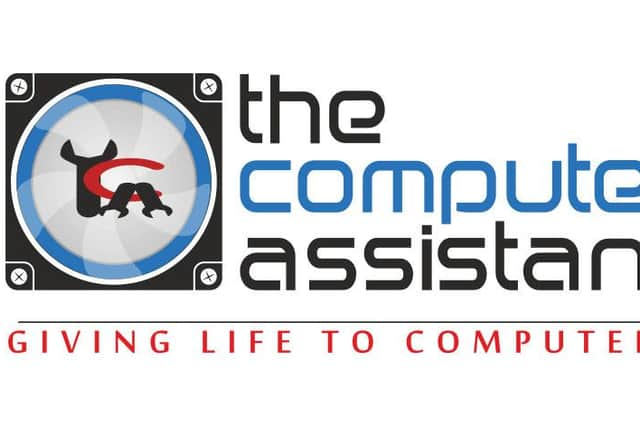Need advice on what device to buy this Christmas? Click here for an expert’s view


Even when you’re the only one that needs the device, weighing up the options can be a headache. The whole arena of computing has been further thrown into disarray as manufacturers blur the lines with multi-functional, multi-tasking and multipurpose devices.
Don’t despair; The Computer Assistant is here to help you make up your mind.
Advertisement
Hide AdAdvertisement
Hide AdThe Desktop PC, despite being somewhat diminished in stature when compared to laptops and tablets, remains the best option for those who know enough about computers to differentiate RAM from uncastrated male sheep and don’t feel the need to take their hardware everywhere they go.


Attractive prices for components enable PC users to build or buy pretty cool machines on low budgets.
The smaller micro or mini variants pack just as much punch as the standard sized ones, not to mention the All-in-ones. So if you need a single computer for the whole family then a PC will do the job. PCs can be built or bought for as little as £200, but a good entry level set up would cost
about £600 including monitor, keyboard and mouse.
PCs offer users, a reliable and adaptable option to computing. Nearly all components can be upgraded or replaced, while monitors and keyboards
can be as large as you have the space for.
Advertisement
Hide AdAdvertisement
Hide AdA PCs Achilles heel is of course its general lack of mobility and the space required for use. If you don’t know a lot about computers, building your own would be the last place to start if you only want to poke someone on Facebook. Lenovo, HP and Acer all provide well-built systems at various price levels.
Laptops enable us to take our digital world anywhere.
However, by virtue of being a portable version of a desktop, performance is compromised by size (purely in principle of course). One can surf the net, listen to music, watch and make video, view photos, communicate, bank, shop, write, study, play and socialise using one single convenient and portable device.
Processors are powerful allowing for multitasking; storage is expandable, very good connectivity for accessories and they are perfect for serious work at home or on the move. Conversely, Laptops are quite fragile and attract all sorts of liquids. They’re prone to wandering off, being left behind or abandoning their owners on trains, buses, planes and taxis.
Laptops are also comparatively more expensive than PCs (for the same level of performance) and limited when it comes to upgrading components. Some units sell for as little as £150 but for that, don’t expect a lot. For around £600, most students, home and business users will get a good combination features and build quality.
Advertisement
Hide AdAdvertisement
Hide AdGood examples include the Acer Aspire (5th Generation), Lenovo W Series, Toshiba Satellite (5th Generation), HPs with AMD A6 processors and the MacBook Air 2015 range.
Tablets, including hybrids, are truly mobile devices as opposed to needing a bag or having to use them sitting down. They are well suited for single screen and distraction free activities like movies, browsing, reading an eBook and short text input on social networks.
They offer a cost effective solution to mobile computing. Icon based operating systems make for extreme simplicity and ease of use, even for complete novices. Tablets have less processing to do so batteries last much longer.
Lots of accessories are also available to improve productivity. As with laptops, they damage easily and are often left behind while in transit. Without an additional keyboard they are not suitable serious computer based work. The Surface Pro is establishing itself as a popular hybrid, while Apples iPad and the Samsung Galaxy Tab S battle it out for tablet supremacy.
Advertisement
Hide AdAdvertisement
Hide AdTo conclude, it must be said that, in practice these devices often complement each other and work well side by side. The final choice of device is really a matter of lifestyle, purpose and budget.
For those who do a lot of home streaming, file and program sharing, multimedia creation, gaming or require just a single device for family use, then a PC would be a good choice. If your need to work and play in different locations and need durability, then a solid laptop will do the job. Where use is centred on viewing online content, access to cloud stored data and social networking then a tablet is perfect.